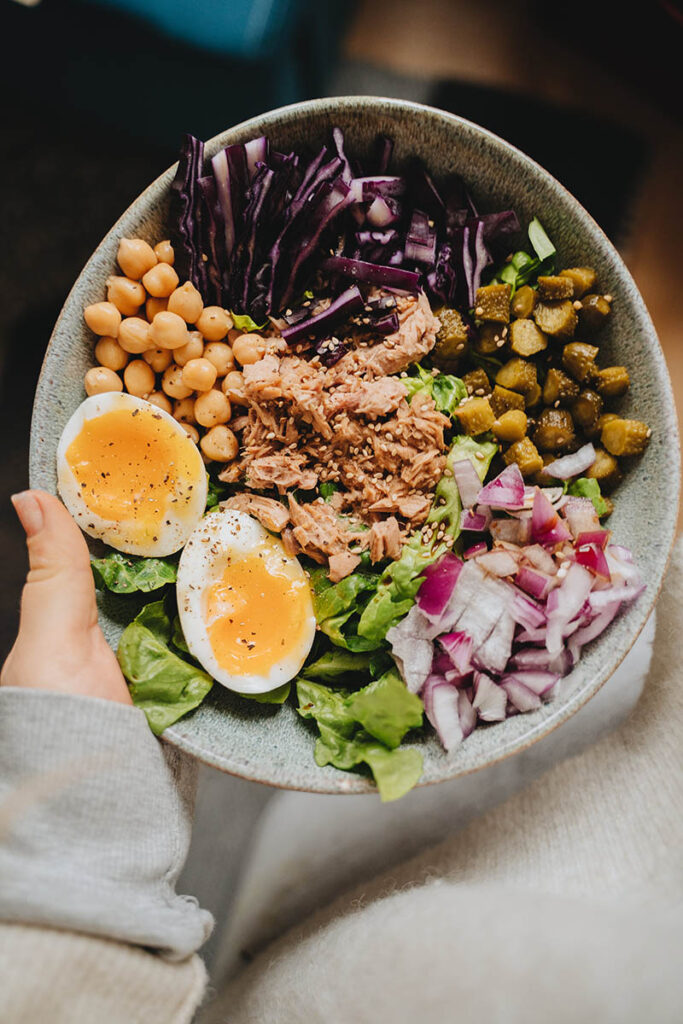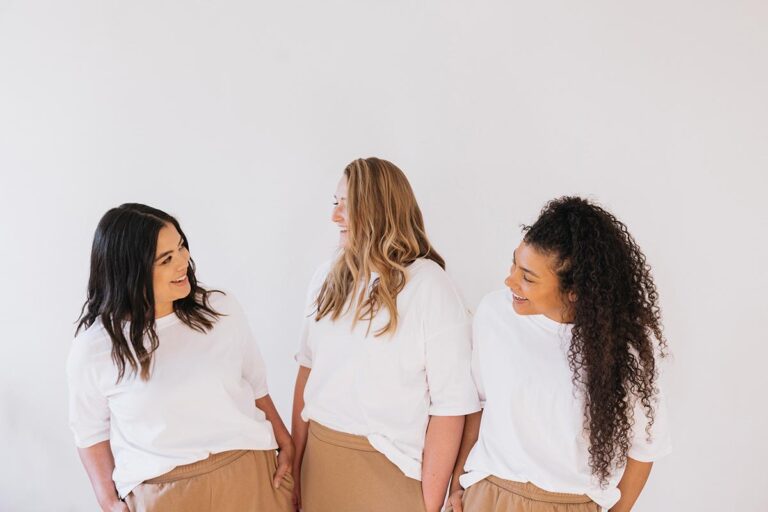Why Your 20s are the Perfect Time to Establish Healthy Habits
Are you in your 20s and looking to establish healthy habits for the long-term? It’s never too early to start taking care of yourself, and your 20s are a great time to establish healthy habits that can last a lifetime.
Whether you’re looking to improve your physical health, mental well-being, or overall lifestyle, there are plenty of simple habits you can start incorporating into your daily routine, especially in your early 20s.
These years are in fact the best time to start forming healthy habits, as they can set the foundation for a healthier and happier life in the future, both physically and mentally.
You who are reading this article, you might have heard that your 20s are the best time of your life. It’s true!
But it also comes with a lot of responsibilities, one of which is taking care of yourself. You only have one body and mind, so why not make the most out of it with these healthy habits?

The Importance of Healthy Habits
When you’re in your 20s, it’s easy to feel invincible and neglect your health. However, establishing healthy habits now can have significant benefits for your physical and mental well-being in the long run.
Here are some reasons why you should prioritize healthy habits in your 20s, and the positive impact they can have on your life:
Physical Health Benefits
Establishing healthy habits in your 20s can help you maintain a healthy weight, reduce your risk of chronic diseases, and improve your overall physical health. Some healthy habits you can start incorporating into your daily routine include:
- Eating a balanced diet that includes plenty of fruits, vegetables, and lean protein.
- Exercising regularly, even if it’s just a brisk walk or a short yoga session.
- Getting enough sleep each night, ideally 7-9 hours.
- Avoiding smoking and excessive alcohol consumption.
- Practicing good hygiene, such as washing your hands regularly and brushing your teeth twice a day.
Mental Health Benefits
Healthy habits can also have a positive impact on your mental health. Regular exercise, for example, has been shown to reduce symptoms of anxiety and depression. Other healthy habits that can improve your mental well-being include:
- Practicing mindfulness or meditation to reduce stress.
- Setting aside time for hobbies or activities that you enjoy.
- Maintaining strong relationships with friends and family.
- Prioritizing self-care, such as taking breaks when you need them and avoiding overcommitting yourself.
Long-Term Health Benefits
Establishing healthy habits in your 20s can also have significant long-term health benefits. For example, a healthy diet and regular exercise can reduce your risk of developing chronic diseases such as diabetes, heart disease, and certain types of cancer.
Other healthy habits, such as avoiding smoking and excessive alcohol consumption, can also help prevent long-term health problems.
Overall, establishing healthy habits in your 20s can have a significant impact on your physical and mental well-being in the long run. By prioritizing healthy habits now, you can set yourself up for a healthier, happier future.

Nutrition and Diet
Maintaining a healthy diet is crucial for your overall health and well-being. Here are some key areas to focus on when it comes to nutrition and diet in your 20s.
Balanced Diet
Eating a balanced diet is essential for getting all the necessary vitamins and minerals your body needs. This means incorporating a variety of foods from different food groups, such as:
- Fruits and vegetables
- Whole grains
- Lean proteins
- Low-fat dairy
Try to aim for a colorful plate at each meal, as this can help ensure you’re getting a variety of nutrients. Additionally, be mindful of portion sizes and avoid overeating.
Hydration
Drinking enough water is crucial for maintaining good health. Not only does it help keep you hydrated, but it can also aid in digestion, regulate body temperature, and improve cognitive function.
Aim to drink at least 8 glasses of water a day, and more if you’re exercising or in a hot climate. Even if you’re not thirsty, it’s important to stay hydrated throughout the day.
Limiting Processed Foods
While it’s okay to indulge in processed foods every once in a while, it’s important to limit your intake. Processed foods are often high in calories, sugar, and unhealthy fats, which can lead to weight gain and other health problems.
Instead, focus on incorporating whole, unprocessed foods into your diet as much as possible. It doesn’t have to be costly or time-consuming – simple changes like cooking at home more often and choosing whole grain options can make a big difference.

Physical Activity
Physical activity is an essential part of a healthy lifestyle. In your 20s, it’s important to establish good exercise habits that you can carry with you throughout your life.
Regular exercise can help you maintain a healthy weight, reduce your risk of chronic diseases, and improve your mental health.
Regular Exercise
The Centers for Disease Control and Prevention (CDC) recommends that adults get at least 150 minutes of moderate-intensity aerobic exercise each week.
This can be broken down into 30 minutes of exercise, five days a week. You can also opt for 75 minutes of vigorous-intensity aerobic exercise each week, including activities like brisk walking, running, cycling, and swimming.
Strength training is also important for overall health. Aim to do strength training exercises at least two days a week.
This can include weightlifting, bodyweight exercises, or resistance band workouts. Strength training can help you build muscle, improve your bone health, and increase your metabolism.
Incorporating Movement into Daily Life
In addition to regular exercise, it’s important to incorporate movement into your daily life. This can include taking the stairs instead of the elevator, going for a walk during your lunch break, or doing a few stretches while watching TV.
Sitting for long periods of time can be harmful to your health, so it’s important to take breaks and move around throughout the day. Here are some tips for incorporating movement into your daily life:
- Set a timer to remind you to get up and move every hour.
- Walk or bike to work instead of driving.
- Take a yoga or dance class with friends.
- Do a quick workout video on YouTube during your break.
Remember, every little bit of movement counts towards your overall health. By establishing good exercise habits in your 20s, you can set yourself up for a healthier future.

Mental Well-being
Taking care of your mental well-being is just as important as taking care of your physical health. Here are some healthy habits to start in your 20s to improve your mental well-being.
Stress Management
Stress is a part of life, but it’s important to manage it effectively to prevent it from negatively impacting your mental health. Here are some ways to manage stress:
- Exercise regularly: Exercise can help reduce stress and improve your mood. Aim for at least 30 minutes of moderate-intensity exercise most days of the week.
- Practice time management: Poor time management can lead to stress. Use a planner or calendar to schedule your time and prioritize tasks.
- Get enough sleep: Lack of sleep can increase stress levels. Aim for 7-9 hours of sleep per night.
- Seek support: Talk to a trusted friend or family member about your stressors. Consider seeing a therapist or counselor if stress is impacting your daily life.
Mindfulness and Meditation
Mindfulness and meditation can help reduce stress and improve mental well-being. Here are some ways to incorporate mindfulness and meditation into your daily routine:
- Start small: Begin with just a few minutes of meditation or mindfulness practice each day and gradually increase the duration.
- Find a quiet space: Choose a quiet, comfortable space where you won’t be interrupted.
- Focus on your breath: Pay attention to your breath and try to clear your mind of distractions.
- Use guided meditations: Consider using a guided meditation app or video to help you get started.
These healthy habits can help you get started, but it’s important to find what works best for you and make it a regular part of your routine.
So, in your 20s, make self-care a priority and develop healthy habits to manage stress and promote mental well-being. Remember, taking care of yourself now can have a positive impact on your future health.

Sleep Hygiene
Getting enough sleep is important for your overall health and well-being. Good sleep habits, also known as sleep hygiene, can help you get a better night’s sleep. Here are some tips to help you improve your sleep hygiene:
Creating a Sleep Schedule
Going to bed and waking up at the same time every day, even on weekends, can help regulate your body’s internal clock and improve your sleep quality.
Aim for 7-8 hours of sleep per night. To help establish a consistent sleep schedule, try the following:
- Set a consistent bedtime and wake-up time.
- Avoid napping during the day.
- Avoid caffeine and alcohol close to bedtime.
- Create a relaxing bedtime routine, such as taking a warm bath or reading a book.
Improving Sleep Environment
Your sleep environment can also affect your sleep quality. Here are some tips to help you create a better sleep environment:
- Make sure your bedroom is cool, quiet, and dark.
- Invest in a comfortable mattress and pillows.
- Use comfortable bedding and pajamas.
- Limit the use of electronics in the bedroom, including TV, computers, and smartphones.
When you’re in your early 20s, you might think that getting enough sleep isn’t a priority, and one or two late nights can’t hurt. However, consistently not getting enough sleep can have negative effects on your mental and physical health in the long run.
That being said, it’s important to start developing healthy sleep habits in your 20s. This includes establishing a consistent sleep schedule and creating a conducive sleep environment.
Your thirty-something self will thank you for starting these habits early on. Not only will you feel well-rested and energized, but getting enough quality sleep can also improve your mood, concentration, and overall productivity.

Preventive Health Measures
Taking preventive health measures in your 20s can help you maintain good health and prevent future health problems. Here are two important sub-sections to consider:
Regular Check-Ups
It’s important to schedule regular check-ups with your primary care doctor, even if you feel healthy. According to Self, most women in their 20s don’t seek medical attention until they have a problem.
However, scheduling a yearly check-up can help detect any potential health issues early on and prevent them from becoming more serious.
During your check-up, your doctor will likely check your blood pressure, cholesterol levels, and perform a physical exam. They may also recommend additional tests or screenings based on your medical history and lifestyle.
Vaccinations
Getting vaccinated is an important preventive measure that can protect you from serious illnesses. According to the Office on Women’s Health, here are some vaccines to consider in your 20s:
- Flu vaccine: The flu can be serious, especially for young adults. The flu vaccine is recommended every year.
- HPV vaccine: The HPV vaccine can help prevent certain types of cancer, including cervical cancer. It is recommended for both men and women.
- Meningococcal vaccine: This vaccine can help prevent meningitis, a serious infection of the brain and spinal cord. It is recommended for college students and other young adults who live in close quarters.
- Tdap vaccine: The Tdap vaccine can help protect against tetanus, diphtheria, and pertussis (whooping cough). It is recommended every 10 years.
Talk to your doctor about which vaccines are right for you based on your medical history and lifestyle.

Social Connections
In your 20s, building and maintaining strong relationships is essential for your well-being. Having supportive friends and family members can help you navigate life’s challenges and provide a sense of belonging.
Here are two sub-sections to consider when building social connections that can help improve your overall health and well-being:
Building Strong Relationships
It’s important to invest time and energy into building strong relationships with the people in your life.
This means being present and attentive when spending time with them, actively listening to their concerns, and showing them that you care. Some ways to build strong relationships include:
- Regularly checking in with loved ones
- Making time for one-on-one conversations
- Celebrating milestones and accomplishments together
- Being open and honest with each other
By building strong relationships, you can create a support system that will be there for you during both good times and bad.
Community Involvement
Getting involved in your community can also help you build social connections. This can include volunteering, joining a club or organization, or attending local events.
By participating in community activities, you can meet new people who share your interests and values. This can lead to new friendships and a sense of belonging in your community.
In addition to building social connections, community involvement can also provide a sense of purpose and fulfillment. By giving back to your community, you can make a positive impact on the world around you.

Financial Health
Last but definitely not least, your financial health is an important aspect to consider in your 20s. This is the time when you are starting to build a career and make financial decisions that will impact your future.
Managing your finances is an important part of adulting, and it’s never too early to start building healthy financial habits. Here are some tips to help you get started:
Budgeting
Creating a budget is one of the most important things you can do to take control of your finances.
Start by tracking your income and expenses for a month to get a sense of where your money is going. Then, create a budget that allocates your income to different categories, such as rent, groceries, and entertainment. Make sure to include a category for savings, too!
To make budgeting easier, consider using a budgeting app or spreadsheet. Many apps allow you to link your accounts and automatically categorize your transactions. This can save you time and help you stay on top of your spending.
Saving and Investing
Saving money is important, but it’s not enough on its own. To make your money work harder for you, consider investing. Investing can help you grow your wealth over time, but it’s important to do your research and understand the risks involved.
One of the easiest ways to start investing is through a retirement account, such as a 401(k) or IRA. These accounts offer tax benefits and can help you save for the future. If your employer offers a 401(k) match, make sure to take advantage of it!
Another option is to invest in low-cost index funds or exchange-traded funds (ETFs). These funds offer diversification and can help you minimize risk. Make sure to do your research and choose funds that align with your investment goals and risk tolerance.

Final Thoughts
Being young and in your 20s is the perfect time to start building healthy habits for the future. Along with taking control of your finances, there are many other habits you can start now that will benefit you in the long run.
While many young people have very little to no clue about how to have a healthy and wealthy life in their 30s and 40s, those in their 20s have the advantage of time. By starting early, you can establish good financial habits that will pay off in the long run.
If you’re still on the fence about starting these habits, just remember that small changes can make a big difference.
New year is just a few days away, so why not make a resolution to start implementing these healthy habits in your 20s and reap the rewards in the future? Your future self will surely thank you for all the efforts and sacrifices you make now.





